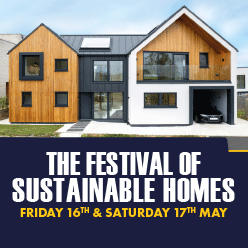In case you missed it see what’s in this section
Let's Talk
Top Tips To Help You Make Informed Decisions In Property Development
Embarking on a property development journey is no simple feat. It's a dynamic and ever-evolving field that demands a blend of creativity, analytical thinking, and a deep understanding of both the market and the physical environment.
Whether you're an experienced developer or someone just stepping into the property landscape, the challenges remain consistent. From understanding market demands to navigating the intricacies of planning regulations, every decision carries weight. Moreover, as modern developments move towards more sustainable and community-centric approaches, there's a rising need to ensure that properties are not just brick and mortar structures but are integrated parts of the larger ecological and social fabric. Today we’ve prepared a handy guide, that you can use to gain insights into some of the best practices in the industry to help you make more informed decisions in the future.
Consider Infrastructure And Amenities
Understanding the existing infrastructure and potential amenities is pivotal. It's not just about the building itself but the ecosystem it resides in. The proximity to key infrastructure like transportation hubs, schools, hospitals, and recreational centres can significantly influence the attractiveness and value of a property. Additionally, amenities such as parks, shopping centres, and entertainment zones enrich the living experience for potential residents. A development surrounded by robust infrastructure and a variety of amenities often translates to higher demand and better rental or sale prospects. In addition, considering these factors can guide decisions on what additional amenities should be incorporated within the development itself.
Prioritise Sustainability
The modern property development landscape is increasingly moving towards sustainability, with both consumers and stakeholders placing great importance on eco-friendly initiatives. Prioritising sustainable practices is not only beneficial for the environment but can also enhance a property's appeal and market value. A key aspect of sustainable development in the UK is the protection of native wildlife, including bats. Bat surveys, like those offered by batsurveys.co.uk play an essential role in ensuring that developments do not disrupt local bat habitats. By partnering with expert services that specialise in bat surveys, developers can make informed decisions that both respect and protect the natural environment.
Ensure Effective Communication With Stakeholders
Clear and open communication is a key part of any successful property development project. It's imperative to keep all stakeholders in the loop, from investors and local authorities to contractors and potential buyers. Regular updates, transparent discussions, and a willingness to listen can make the difference between a smoothly run project and one fraught with misunderstandings and delays. Remember, stakeholders are not just financial contributors. They also bring expertise, perspective, and sometimes even challenges that can refine the development process. Building trust through effective communication will facilitate smoother decision-making and foster stronger, more productive relationships.
Keep An Eye On Your Budget
A well-structured budget serves as a roadmap, guiding decisions and helping prevent costly overruns. It's essential to allocate funds realistically, taking into account potential unforeseen expenses. Regularly revisiting and updating your budget ensures that you remain on track, making the necessary adjustments as the project progresses. Tools and software are available to help track expenses, but nothing replaces the importance of personal oversight. Remember, while staying within budget is vital, cutting corners to save costs can compromise the project's quality.
Conduct A Comprehensive Risk Assessment
Navigating the world of property development invariably comes with its share of challenges and uncertainties. To mitigate potential pitfalls, it's essential to conduct a thorough risk assessment at the outset of your project. This involves identifying potential threats, from fluctuating market conditions to construction-related issues, and devising strategies to address them. A comprehensive risk assessment not only helps in foreseeing problems but also in preparing contingency plans. This proactive approach ensures that you're not caught off guard, allowing for smoother project progression and enhancing the chances of achieving your development goals.
Stay Up-To-Date With The Latest Trends
The property market, much like other industries, is ever-evolving. To remain competitive and appeal to potential buyers or tenants, it's crucial to be aware of the latest trends in design, technology, and sustainability. Whether it's the rising demand for smart homes, eco-friendly construction materials, or innovative architectural designs, staying abreast of current trends can give your development a distinct edge. Regularly attending property exhibitions, subscribing to industry journals, and networking with other professionals can provide insights into what the modern property seeker desires. By integrating these trends into your projects, you ensure that your developments remain relevant, attractive, and in high demand.
Start Networking
Building a robust network can open doors to unique opportunities, expert advice, and beneficial partnerships. Attending industry events, joining property development associations, and participating in community meetings can introduce you to fellow developers, potential investors, local authorities, and other influential figures in the sector. What is more, cultivating these relationships can lead to collaborations or referrals, bolstering your reputation and business prospects. As with many industries, a recommendation from a trusted contact can make a world of difference in securing deals or gaining insider insights.
Consider Health And Safety
Property development is not just about creating aesthetically pleasing spaces. It's also about ensuring that they are safe and compliant with health standards. From the construction phase to the final handover, health and safety must remain one of your top priorities. This means adhering to the latest safety regulations, ensuring that workers have the proper protective equipment, and regularly conducting site safety inspections. In addition, considering elements like fire safety, accessibility, and secure structural designs in the final development can make a significant difference in the well-being of future occupants. As a result, you not only protect your investment and reputation but also demonstrate a commitment to the welfare of both workers and residents.
Embrace Flexible Design Principles
Creating spaces that can adapt to various needs and uses ensures that your properties remain relevant and appealing for years to come. This could mean designing homes that can be easily modified to cater to growing families or changing lifestyles, or creating commercial spaces that can transition from a retail unit to an office or vice versa. With technology advancing and the way we use spaces continually shifting, a flexible design can be a significant asset. It not only increases the
longevity and usability of a property but can also make it more attractive to potential buyers or renters, who see the value in adaptable and versatile spaces.
Weather in Swindon
Listings





















